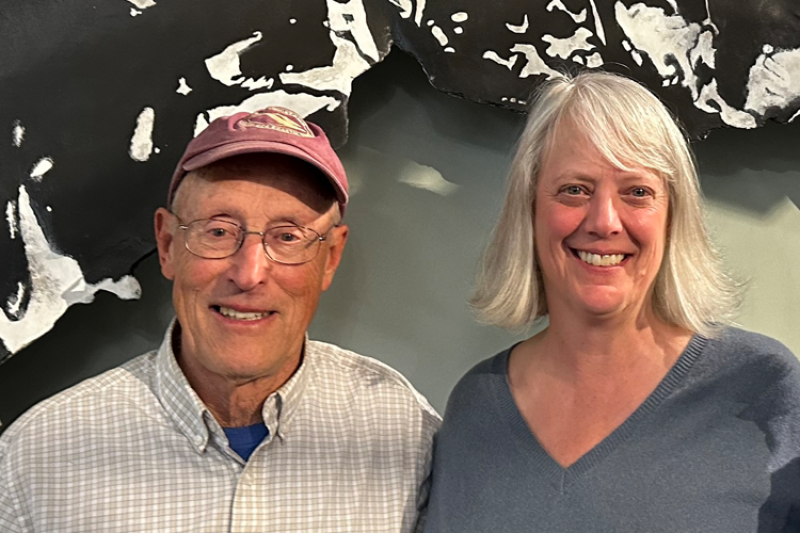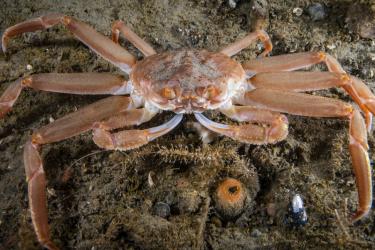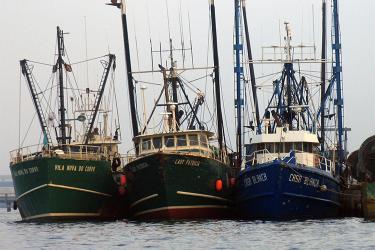In my line of work, I’ve had the privilege to meet some real life heroes. And for his long career tirelessly conserving and studying marine species, Dr. Charles "Stormy" Mayo is one of them. But even environmental heroes have to retire eventually. Stormy Mayo is the latest North Atlantic right whale hero to set aside his 24/7 efforts to establish a more leisurely pace.
After 48 years as the Senior Scientist for the Center for Coastal Studies and director of the CCS’s North Atlantic Right Whale Ecology Program, Stormy is retiring this month. He has spent close to 50 years studying marine life, and more than 40 years monitoring and disentangling North Atlantic right whales in Cape Cod Bay. He spends time researching and observing whales in and around Stellwagen Bank National Marine Sanctuary. In fact, he also had a hand in helping to establish it as a National Marine Sanctuary. His incredible reverence for, and dedication to, marine species such as endangered North Atlantic right whales are a common thread throughout his work. Whether it’s in his careful study of zooplankton or right whale behavior and habitat, or the countless times he’s taken on the dangerous work of rescuing entangled whales so they can survive and thrive, Stormy is an inspiration to us all.
Founding the Center for Coastal Studies
Stormy founded the Center for Coastal Studies along with colleagues in 1976. Today, the Center is a world-class institution that trains marine scientists and marine mammal and sea turtle emergency responders from around the globe. The Center pioneered North Atlantic right whale research as well as rescue techniques for entangled large whales and sea turtles. They helped set the standard for conservation and recovery worldwide. Some even credit Stormy’s perseverance—and insistence—for gaining official authorization and recognition from NOAA Fisheries as the founding of the National Disentanglement Network. As a marine ecologist, he’s driven by his immense curiosity to understand ecosystem interactions. Under his direction, Center staff have also made invaluable contributions to marine science and conservation through their research programs investigating ecology, geology, and population biology.
Up Close and Personal: North Atlantic Right Whales
One of the most moving days so far in my tenure at NOAA involves Stormy and a research cruise with the Center for Coastal Studies. On a research trip on Cape Cod Bay last spring, we spotted “Medusa,” a 43-year-old right whale, and her calf. It was a thrilling and profound moment to see these incredible creatures feeding in the sunshine. Medusa was as big as a school bus and likely weighed 70,000 pounds.
Today, I’m still inspired by the memory of that sight, by the research and rescue partners who were piloting the vessel, and the essential work they do each day. But I also feel somber because I’m aware of the plight of North Atlantic right whales like Medusa. Every day, I feel the weight of their fate on my shoulders. As one of the about 70 reproductively active females remaining, Medusa plays an outsized role in the recovery of this magnificent species. Mothers and their calves are critical to the recovery of North Atlantic right whales. Stormy shares my deep awe and concern for these ocean creatures, which is evident throughout his research career and many disentanglement efforts, and he has been a driving force in promoting right whale recovery.
Thank You from NOAA
From everyone at NOAA Fisheries, we thank Dr. Mayo for the way he courageously pioneered large whale disentanglement techniques, participated in numerous disentanglement efforts, brainstormed improvements with colleagues, and dedicated his life’s work to learning all he could and advocating for these amazing giants. Stormy worked with so many at NOAA through the years to train and motivate our staff. It has left a transformative impact. We are grateful for his commitment to the scientific field, the sea, and to the marine life it holds. As he retires from the helm of the Center and enters a new chapter, I do hope our paths cross again. Thank you, Stormy, for a career of true purpose, and for your work forging ahead in the study and safeguarding of our marine species.






